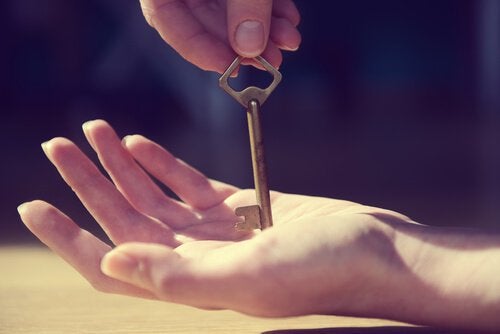In psychology, there is a rule we call the “rule 90/10”. She says the reaction we show to events influences us much more than the events themselves. In fact, only 10% of our lives are determined by what happens. for us: making a mistake, being late for a plane or traffic jams that delay us at work, for example.
By contrast, 90% is directly related to how we react to these situations, which are only 10% responsible. There is evidence that in the same situation people react very differently. Depending on your first reaction to the trigger event that just occurred, you may or may not have a more or less pleasant day.
- In other words.
- Our response to adversity can improve or worsen the rest of our day.
- Week.
- And even year.
- It’s up to us.
Being aware of this rule is important because it allows us to realize that we control most of our lives: 90%. It also frees us from feeling unnecessary emotions, making us see that there are 10% over which we have no control.
If we are able to put will on the subject, something that could be very negative can become a simple one-off fact, or even make us see the positive. You want to see how it’s done? Read.
To clarify how we can implement this wonderful rule, let’s set an example with which we can feel identified, imagine spending the day working on a project requested by your boss, you have to deliver it soon and it’s finally over. while you’re going to record it, your computer’s light suddenly goes out.
Turns out your wife turned on the radiator that always knocks down the automatic switches. You go crazy for life, you’re anxious and you think the world is over. He turns to his wife and ends up arguing sternly with her.
Because you’re nervous, you go to the kitchen and end up throwing the cups on the countertop, unexpectedly breaking your favorite cup, the one you use every morning for coffee, this further increases your anger and blames your child for using them in the afternoon and leaving them there.
After a few minutes, you try by all means to get your job back but you can’t, you’ve lost everything. You get angry, you make the worst curses and you go out on the street to slam the door. When you come back, you’re mad at your son, against your wife, you’ve lost your cup and you haven’t finished the project: you have what we can call a bad day so far.
What happened? As you can see, there is a trigger that takes care of this 10%: turning on the heater, causing the circuit breaker to fall, is a fact that is not up to us, an uncontrollable thing that someone else has done without bad intentions, a simple mistake.
It’s up to us everything that happened next, it’s the 90% that turned a normal day into a horrible day, because of a problem our protagonist ended up creating several more.
Instead of putting his energy into redoing the project, asking his wife for help or talking to the boss about the unexpected and asking him to give her a longer period, she decided to trigger a reaction that was useless. arguing because of a unique and uncontrollable fact, is it worth it?
Many situations can be potential triggers for dysfunctional and unnecessary reactions, it is in these situations that we must remember this rule and put our will not to get carried away by emotion, in fact, the key is to accept frustrations as part of the game of life.
You can’t control other people’s judgments and criticisms because they have a right to think what they want. You can control the weight you give these judgments, the importance you give them. If I can’t control what they think of me, why waste energy on that?
You can’t handle your mistakes. You can learn from them, but you’ll still make mistakes because that’s your nature. Can you only control your reaction to these mistakes, whether or not you accept yourself with them, how much you scold yourself, if you are able to tolerate them??
The reactions of others are uncontrollable on our part, demanding that someone be otherwise unrealistic, and all we will get is a huge frustration and loss of the quality of the relationship we have with these people.
Living leads to countless adversities. Research shows that every human being will experience 20,000 misfortunes throughout his life: as light as walking on a dog’s faeces, even as serious as losing a loved one, something to consider in the overall budget of life and that is impossible to control. We are only responsible for how these adversities affect us.
So, when you face a fact that you know is uncontrollable, practice the 90/10 rule, you know that 90% depends only on you and that if you can’t be influenced by that 10% of what happens, they will. stay like a grain of sand and you’ll get rid of it by turning it into a mountain.

